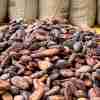Women’s Prison and Correctional Home in Thiruvananthapuram has a thriving food production business
The Hindu
Food production unit at Women’s Prison and Correctional Home in Thiruvananthapuram has been getting orders from public for idlis and other snacks prepared at the unit
“Kollamo (is it good)?” asks Sujatha (name changed) as I clean up the soft idlis, tangy sambar and chutney on my plate. We are at the food unit-cum-kitchen of the Women’s Prison and Correctional Home at Attakkulangara in Thiruvananthapuram. “The chutney has sautéed tomato, onion and chillies,” Sujatha adds, as another inmate passes a plate of banana chips, hot off the stove. They are among the four prisoners working at the unit.
Prisons and correctional homes across the state have been selling food products prepared by the inmates under the brand, Food for Freedom. The women’s prison, which opened at Neyyattinkara in the district in 1990 was shifted to the present location in September 2011.
The current building was once the stables of the erstwhile Travancore rulers in the mid-19th century. The age-old structure, with 46 inmates at present, stands on one acre and nine cents.
The food unit is a small room with minimal facilities. All that you see are two stoves, a refrigerator and cooking utensils, besides a shelf stacked with packets of banana chips, munthirikothu, pakkavada, madhuraseva, cookies, vettucake, mixture, mango pickle and roast groundnut. “All these snacks are made by these four women. Idlis are sold every day (except Sundays) from a counter near the prison entrance from 6am onwards. It usually gets over by 10am. A packet, costing ₹35, has five idlis, sambar and chutney,” says Minimol PS, superintendent-in-charge.
By 4.30am, the women get busy in kitchen, clad in their uniform – long blouse and mundu in off-white colour, a dark green apron and cap. “The batter is prepared the previous day. They grind enough batter for two days at a time. At least 30 idli packets are sold every day. Once the idlis are ready, they take a break, before they start making snacks,” says Rakhi Raghavan, assistant superintendent.
It was in 2016 that the prison started selling idlis. The unit has also been preparing food products on order. “During the Attukal Pongala festival (annual festival at Attukal Bhagavathy Temple which witnesses record assembling of women devotees), we provided upma for 1,000 people. It was a first for us. There was an order for 5,000 idlis on the same day. But we couldn’t take it up. We also provided free lunch for over 500 devotees on the day of the Pongala,” says Minimol.
Rakhi adds, “On the day of the Pongala, the inmates were in the kitchen by 12.30am itself since the upma had to be ready before 6am. Nearly 100 kilograms of rava (semolina) was used. Since we have only two stoves, we had to prepare it in batches of 10 kilograms each.”













